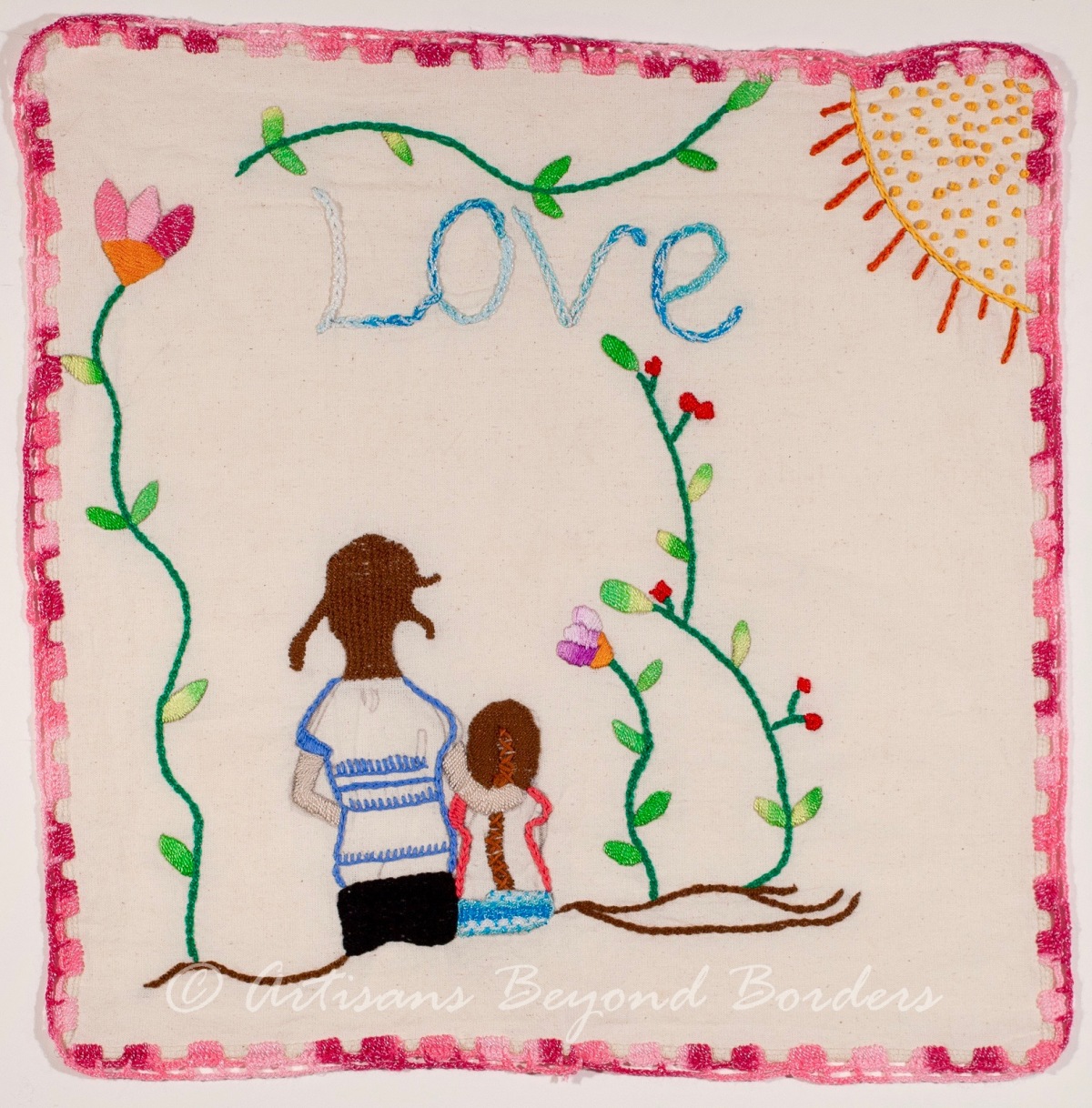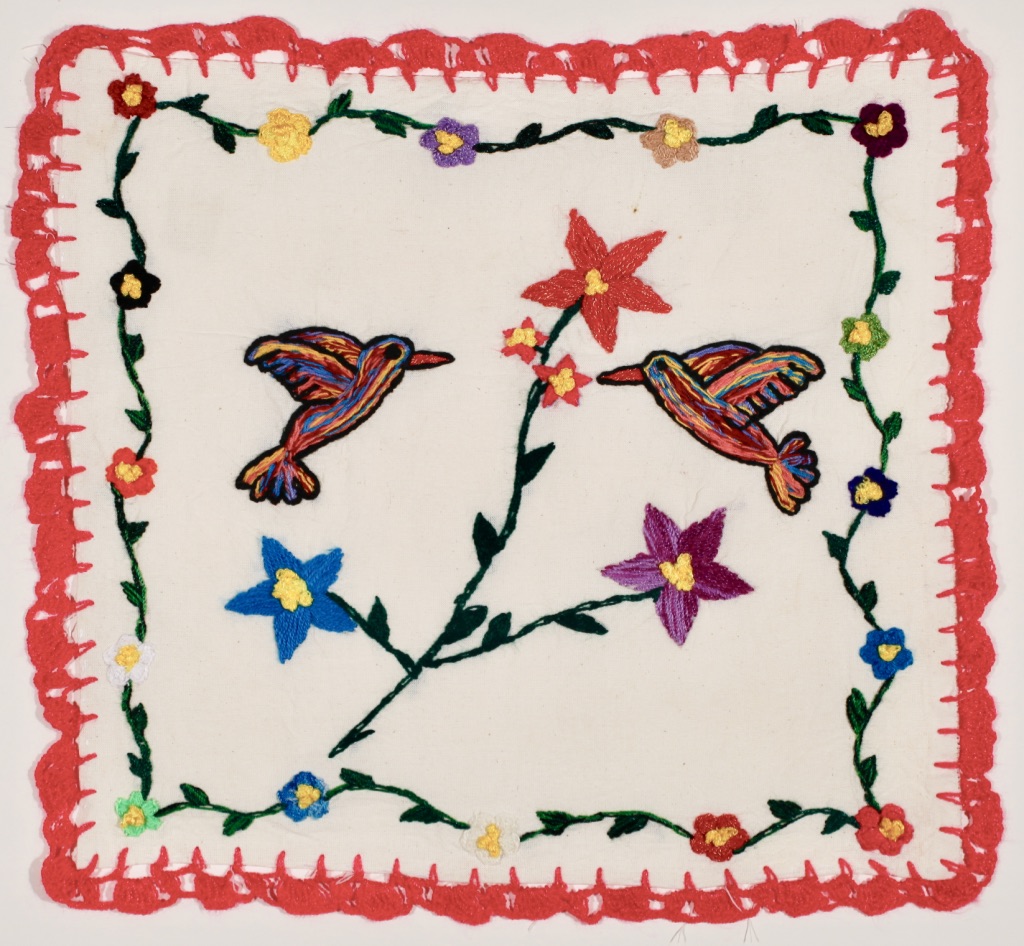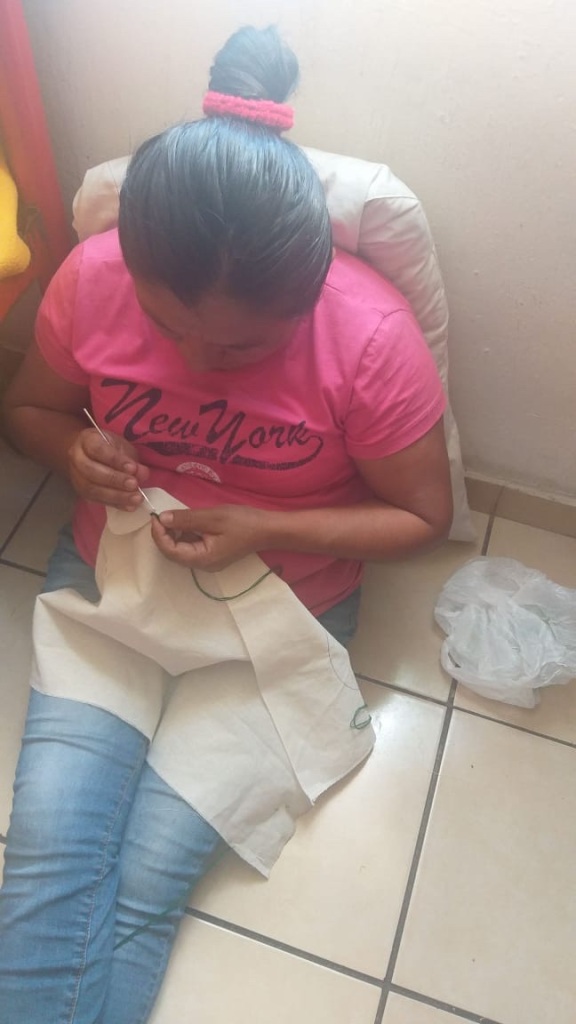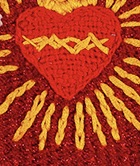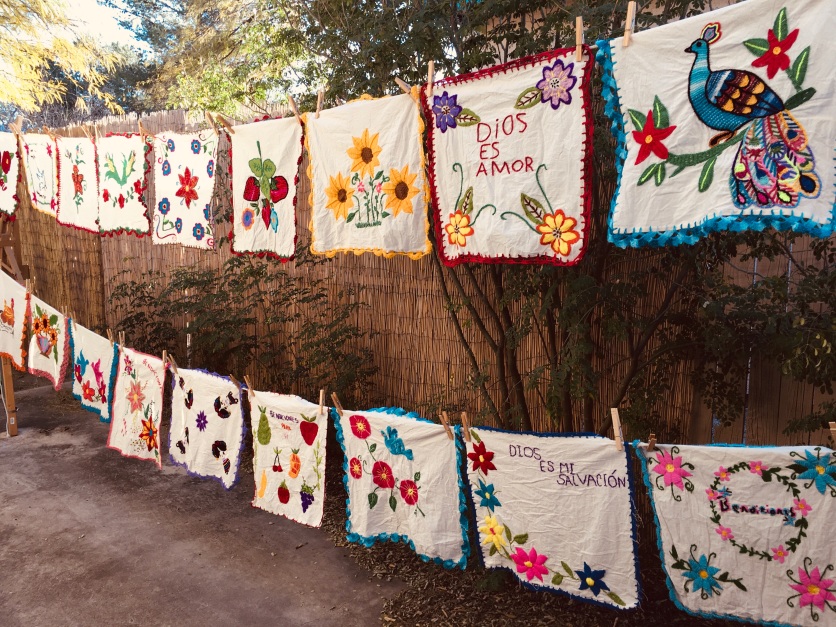
Directly Support these artisan asylum-seekers and their families waiting on the streets at a bus stop shelter in Nogales, Sonora, Mexico by donating to
Voices from the Border
Earmark your donation “Norma’s Bordadoras.”
Recover & Restore
We had always hoped that our Bi-national initiative Artisans Beyond Borders would be an incubator, a beautiful seed. God willing, it would grow into other artisan initiatives on the border and beyond. We hoped that A.B.B. would help to educate and inspire others to pick up and carry on the mission of restoring grace and agency for migrants through the arts.
In the beginning, during Trump’s pre-pandemic days, our volunteer arts facilitators set up card tables of embroidery and crochet supplies in the streets of Nogales and served hundreds of dispossessed folks. Even then, we dreamed of finding safe maker spaces in Nogales where people could experience some peace and dignity in the middle of forced family migrations so fraught with fear.
Stuck in Nogales by U.S. policies and the pandemic, artisans organized into groups, and taught each other. They formed collectives of solidarity, coordinators emerged, and they found safe spaces to work. In short, they recovered agency that was theirs already but had been stripped bare by multiple traumas experienced at home and on the road.

at Casa de las Misericordia’s safe Maker Space
You can help support the Therapeutic Maker Program at Casa de la Misericordia shelter for migrating families by donating directly to
Cruzando Fronteras
Earmark your donation “Programa de la Actividades”
Educational and border rights organizations from Southern California to Juarez have expressed an interest in ABB as a model initiative (often the only support of its kind), to help vulnerable migrating families. We are pleased to be progenitors of this programming at the border, and we applaud any and all efforts by other initiatives and helpers to move the needle (pun intended!).
In the last two years, in the shadow of politics and the pandemic, the Tucson Friends of Artisans Beyond Borders created and developed a market through the internet for the beautiful embroideries created by our artisans. A.B.B. evolved from trauma-informed art and activities to micro-enterprise. As awareness and interest in the familial arts of migration grew, so have other artisan projects and potential markets. So, now A.B.B. volunteers are stepping back from marketing and retail to make room for others to flourish. We are moving instead into a more educational service. Ultimately, we hope to encourage more artisans to create and market their own work. Each artisan is their own seed taking root.
Educate and Inspire
For the last year, the Tucson Friends of Artisans Beyond Borders have been curating a national traveling exhibition of the artisans’ retablos of asylum, sponsored by the Arizona Episcopal Diocese. In this profoundly original exhibition, the public has the opportunity to understand what is most sacred to our neighbors. Their devotional retablos, religious embroidery, written with thread and rendered in cloth are deeply personal and embodied testimonies of faith and resilience.
Going forward into 2022 and 2023, A.B.B. will be working with churches and schools that are hosting the exhibit throughout the U.S. to further border understanding and help their outreach efforts to their local migrant communities. The funds raised through the exhibition and donations will go to the Artisans Beyond Border Maker Fund, supporting therapeutic arts programming for migrants on the border and also providing start-up funds for our artisans in the U.S. so they can move forward independently.
After December, we will not add new inventory to our Etsy shop for the foreseeable future. Instead, we will be routing supporters directly to artisan initiatives on the border and beyond as some of the makers become more established in the U.S.
Meanwhile, according to the Post Office, you have until December 17th to place an order at the Etsy shop and have it shipped to you by Christmas. If it is a gift, we can send it directly to the address you wish.
Etsy shop – Bordando Esperanza
In the New Year, A.B.B. will table locally on Saturday, January 15 only at the first public showing of Bordando Esperanza ~ Embroidering Hope: Retablos of Asylum at the Common Ground on the Border Conference at the Good Shepherd UCC Church in Sahuarita. Hope to see you there!
In Border Peace, Tucson Friends of Artisans Beyond Borders














